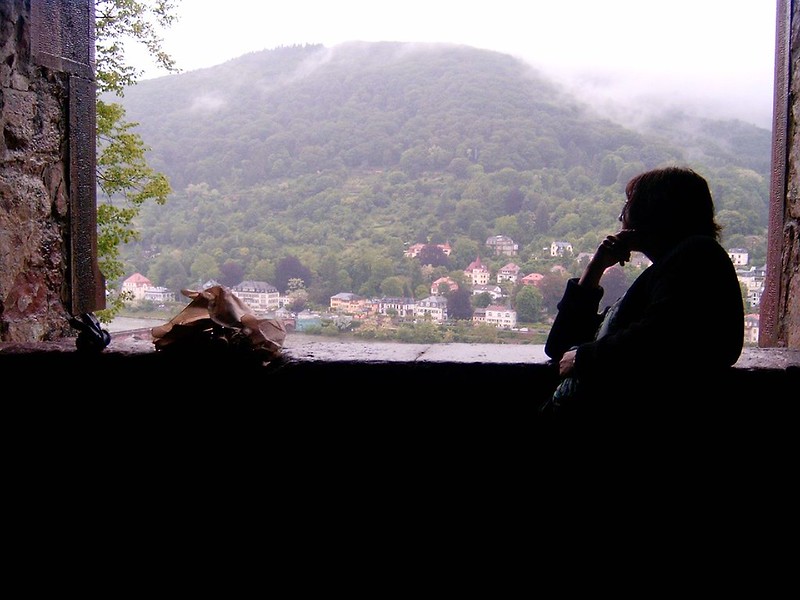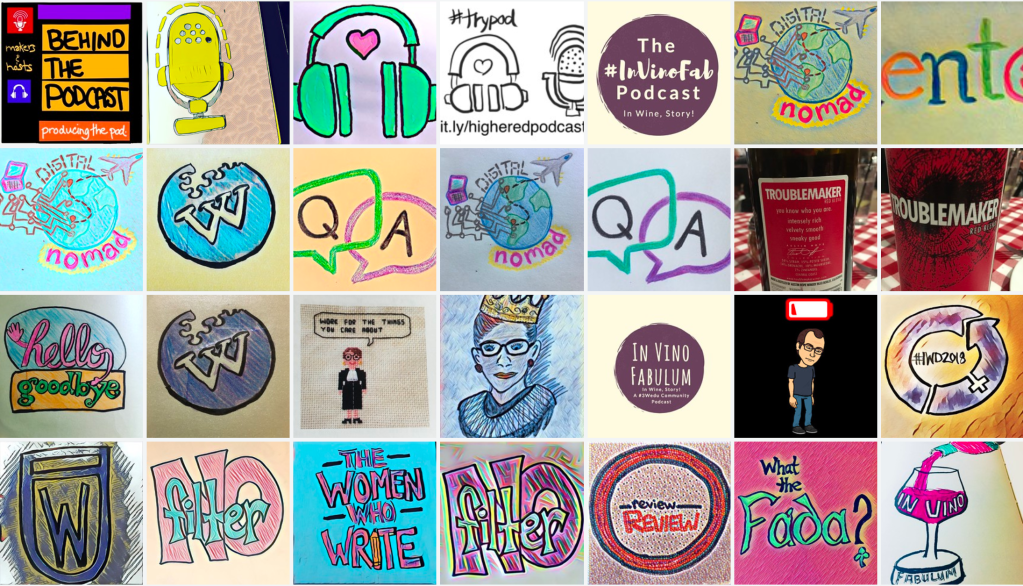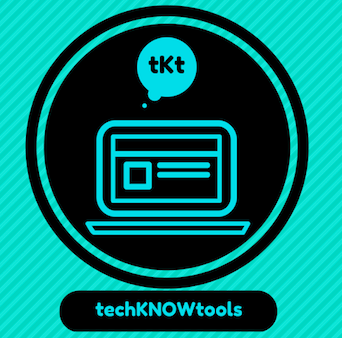“I share, therefore I am.”
Sherry Turkle, Reclaiming Conversations: The Power of Talk in a Digital Age
Does always sharing with friends and peers have a cost? Does blogging make me conform to the values and opinions of my readers? Do I only tweet ideas that fit a particular “brand” or tone? Is crowdsourcing my reading practices make me conform to popular books? Are my podcast ponderings helping me voice out ideas or does it detract from my own introspection?
For a while now, I’ve been thinking more about where I am putting ideas and how they are shared. Is it true — if we are always on and being “social” digitally — are we ever alone? I truly value the alone time to think, write, draft, and ruminate. For example, this very blog post was probably sitting in my draft post folder for over 18 months. Maybe forgotten, or just marinating — as this concept continues to creep into my mind a lot. I’ve been teasing out what could and should change about my public (online) and private (offline) self. These tensions are more fluid and complex these days. There’s value in not being connected or feeling that you need to be “on” — from the digital realm. And, I’ve found great benefits for the analog life: reading a real book, doodling images, playing my ukulele, and paper-to-pen writing. All of this helps with a reset and encourages me to be more mindful of things around me.

This concept of public vs. private has impacted how I show up online from Turkle’s (2016) and other works. And, I know that I’m not the only one who has been thinking about disconnecting — even before this pandemic. I saw a number of folks within my personal and professional network have dropping offline over the past 5 years. Whether it’s the scale of the platforms we found each other on or the cost of connectivity with online harassment. My digital community and personal learning networks feels very different now. It’s not that I can’t catch a glimpse of banter, fun chat, and comrade on social media spaces, like Twitter or Instagram. It’s rather how these type of spaces prop up — power, privilege, consumerism, and promotion — rather than being a shared commons it once was. I miss hearing voices that should and could be amplified — and those who have muted themselves out of safety, well-being, or just, life. I get that.
So, all of this to say is I have been trying to carve out some quiet contemplation time each day — to make room for free thoughts and really, create a space for random ideas to percolate. The practice of disconnecting is not to do away with a networked life — but more to to offer ways to focus on purposeful possibilities. I will note that I used the word “practice” as it doesn’t always work out. I too can get sucked back into the quick buzz of the likes, RTs, and short interactions.
That being said, I have been shifting my “social” participation online to be a space where I work out more things — sometimes on this blog and rarely on Twitter — but more so, in audio format. Podcasting has been an interesting way to think in public for me. I’ve been doing it for over a decade, but this last year I found it to be a refreshing reprieve from all the things. I might have a podcast problem (here are a few podcasts that I host/produce/create), but I’m not ready for a pod intervention just yet! I think what I have enjoyed most is the long tail reward for this type of audio project.

For me, podcasting and audio production is less about the end product and more about the process. By shifting my streams of thoughts into audio waves, that requires intention with preparation, recording, editing and post-production. In this workflow, I have been able to linger with with topics and ideas, plus I get to learn with/from those who join me in conversation. Podcasting has allowed me to have some amazing chats and ask deep questions, while also offering me a space to talk out what I’m exploring and learning (e.g. test prep or coach training). There are episodes, I can go back to reflect on and smile at when I am cutting audio tape and curating links.
To be a solid podcast host, I really have to be there, be present, and be in the moment. This sustained practice has afforded me some great friendships, allowed me to practice a number of skills, and gain so much knowledge and insights from anyone who has joined me on my podcasting journey — thank you dear listeners, guests, and co-hosts! I love digging into real-life issues about work, learning, family, friendships, coaching, politics, technology, future life, and more. Podcasting has given me ways to hold space for authentic conversations that have only helped me (and I hope others) learn and grow. In reclaiming conversation, Turkle (2016) identifies three key aspects that resonates with my love of podcasting:
- Think time. Slowing down with audio technology, allows me to intentionally hold space by dedicating time for conversation, reflection, and really give pause for how we communicate; we’re not cogs in the machine.
- Being quiet. I’ve created a podcast zone/booth in my office closet. By designing an environment to lock in, listen, chat, and learn, I have to remove all the distractions when I sit down to record a podcast. Once the headphones are on to record or edit, I’m in the flow of this work to focus my attention fully.
- Uni-tasking. I prep my podcast with run of show notes and questions with a single document or with a single tab, and then it’s go time. I usually have a pen and notebook to jot down ideas, questions, or interesting points that might come up — but really, my attention is all on the recording in progress.
In many ways, this type of thinking is public and perhaps even more vulnerable. I’m less interested in the instant response — or really, any response at all. As I am finding meaning in podcasting process and I continue to value the learning that happens in the post-production review. If you like the show notes shared in each episode or even the artwork drawn for the pod, that’s great. But I’ll have you know, it’s really for my own thinking, learning, and pondering as I take in these audio ideas and conversations. AND what’s on the cutting tape floor for audio and my own journal reflections — that’s for me to hold onto and smile knowingly.
What has changed with your online sharing habits? How do you think in public and private spaces? What digital and/or offline spaces do you value now?
References:
Turkle, S. (2016). Reclaiming Conversations: The Power of Talk in a Digital Age. New York, NY: Penguin Random House LLC.
